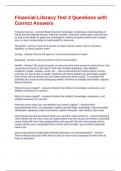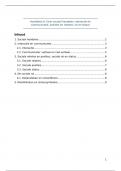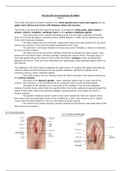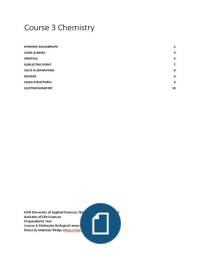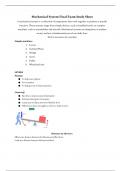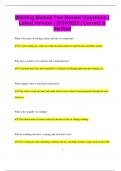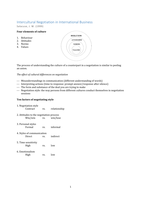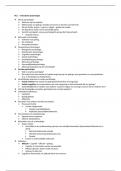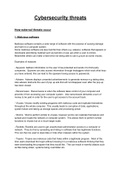Correct Answers
Financial Literacy - Answer-Basic financial knowledge, including an understanding of
banks and the banking system, financial markets, credit and credit cards, and tax laws,
as well as the ability to apply this knowledge in making decisions about how to spend,
earn, or save money today to build wealth for tomorrow
Net Worth - Answer-A person's assets, or what a person owns, minus a person's
liabilities, or what a person owes
Saving - Answer-Income not spent on current consumption or taxes
Spending - Answer-Using income for current consumption
Wealth - Answer-The stock of assets or resources that have economic value-that is, that
can produce income in the future. Note that, broadly speaking, many abilities -
academic, health, creative, social, etc. - can be harnessed to produce future income,
and thus are also forms of wealth. Students with these abilities are potentially wealthy
even if they cannot afford to buy the latest electronic device today. To translate this
potential into actual income-producing wealth, and then to manage that wealth, requires
financial literacy.
What is human capital? - Answer-Includes the intellect, knowledge, experience, and
attitude necessary for success
What is human capital? - Answer-Includes the intellect, knowledge, experience, and
attitude necessary for success
What are some ways you can develop your human capital? - Answer-More
education/experience, be adaptable, explore several fields, participate, improve people
skills/public speaking, make connections, publish thoughts, stay healthy, start early
Why should you look at demand when you consider career choices? - Answer-Declining
career fields will not have many job opportunities and will not pay well where as growing
career fields will have many opportunities and pay well. But the more people want a
certain job the more competition there will be and the higher your human capital will
need to be.
What is the general relationship between education and unemployment? - Answer-
Those without education often have no jobs or lesser jobs compared to those who do
have an education
, What things other than demand should you consider when making career choices? -
Answer-If it can sustain your yearly budget, if it will make you happy
What are some of the major differences between being an employee and being an
entrepreneur? - Answer-Entrepreneurs have varying job stability, varying success,
varying benefits, work longer hours, lower beginning salaries, and must be prepared for
anything. Employees also have varying job stability and success, but work shorter
hours, have predetermined salaries and benefits, and must do as their employer tells
them
What is the role of the entrepreneur in the economy? - Answer-Create new goods and
services/improve upon existing goods and services, add goods and services/offer
variety/approach familiar problems in a new way, consume resources/hire workers,
provide jobs and help the economy grow
Why does the job market change over time? - Answer-Need for different types of
workers evolve, economy changes, technology advances
What is the opportunity cost of dropping out of high school? - Answer-A good education,
which would lead to a better paying job, which would lead to a better life
What are the fastest and slowest growing career clusters in the united states? (chart on
job market) - Answer-Fastest-Biomedical engineers
Slowest-Athletic trainers
What is the difference between hard skills and soft skills? - Answer-Hard Skills-
teachable abilities or skill sets that are easy to quantify
Soft Skills-People skills
Disposable Income - Answer-Discretionary Income-money after taxes/payroll
deductions and after basic needs have been met
Unearned Income - Answer-Income from investments
Transfer Payments - Answer-Payment/income received where no goods/services are
exchanged
Tax - Answer-Money paid for support of the government
Tip - Answer-Receiving money in addition to wages for quality of service
Profit - Answer-Amount earned-amount spent, amount gained
Excise Tax - Answer-Indirect tax charged by government on sale of a particular good or
service

